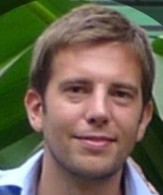
ROHAUT Benjamin
Title: Project Sponsor
Function: PI
Affiliated entities Sorbonne Université, AP-HP
Advances in critical care technology have increased the number of patients surviving serious illness. Acute brain injury can lead to disorders of consciousness that are difficult to assess and understand. He has devoted his career to deciphering the basis of acute brain dysfunction in patients in intensive care and to developing state-of-the-art tools to probe residual cognitive abilities to improve diagnosis, prognosis accuracy and treatment for patients with impaired consciousness. During his PhD, he conducted research on the relationship between verbal semantic processing and consciousness in both brain-injured patients and healthy volunteers at Paris Brain Institute under the direction of Professor Lionel Naccache. He has conducted several research projects exploring the cognitive abilities of patients with impaired consciousness using electrophysiological markers (for example, Event Related Potentials calculated from the activity of the electroencephalogram (EEG) from the scalp to the bedside). Since 2016, he has focused his research almost exclusively on projects involving patients with acute brain injuries. Under the tutelage of Professor Lionel Naccache, he has conducted research on the relationship between verbal semantic processing and consciousness in both brain-damaged patients and healthy volunteers at Paris Brain Institute. He has conducted several research projects exploring the cognitive abilities of patients with impaired consciousness using electrophysiological markers (for example, Event Related Potentials calculated from the activity of the electroencephalogram (EEG) from the scalp to the bedside). Since 2016, he has focused his research almost exclusively on projects involving patients with acute brain injuries. Under the supervision of Pr. Dr. Jan Claassen of Columbia University has developed a number of quantitative brain imaging and EEG measurements that are correlated with altered and recovered consciousness. In particular, they have shown that patients who do not respond clinically may be in a state of "cognitive and motor dissociation" (CMD) immediately after brain injury and that CMD status is a potent predictor of functional recovery. After a two-year post-doctoral fellowship at Columbia University, he returned to the Neurological Intensive Care Unit of the Pitié-Salpêtrière Hospital - Sorbonne University as an Associate Professor of Neurology, working as a Senior Investigator in the PICNIC laboratory.
This research focuses on two different aspects of neuroprognosis for patients with impaired consciousness: 1) Multimodal assessment and prediction of functional recovery in patients with brain injury (using behaviour, neuroimaging, neurophysiology, ...) 2) Application of behavioural science to improve decisions under high uncertainty.

